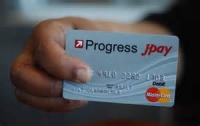
Take Action
We are currently collecting information about the ways that family members of prisoners and detainees get cheated by the high cost of sending money to fund inmate accounts, and the ways that this money is given back upon release from custody (such as debit cards from private companies). There are pending federal actions where your stories could make a difference in these practices. Please fill out our survey to help us end prison profiteering.
The more stories we can collect the greater impact we can have.
If you or someone you know has been charged high fees to send money to a prisoner or to access money when released from custody we would like to know the following:
1) The name of the facility and state it is located in.
2) The name of the company processing the money or issuing the debit card.
3) How much money was taken from you? Were the fees disclosed? If so, how?
4) What documentation do you have?
5) When did it occur?
6) Did you object?
Please send your responses to: kmoses@humanrightsdefensecenter.org
Washington, DC – Yesterday, the Human Rights Defense Center (HRDC) filed a comment with the Consumer Financial Protection Bureau (CFPB), an independent federal agency, urging the CFPB to add language related to protecting the finances of released prisoners to a proposed rule regarding regulation of prepaid debit cards. Sixty-eight criminal justice reform groups, civil rights organizations and public interest law clinics joined in the comment.
The comment requests that the CFPB exercise its authority under the Electronic Fund Transfer Act (EFTA) to add language to a proposed rule regarding regulation of prepaid accounts under EFTA and the Truth in Lending Act that extends the ban on compulsory use to prepaid debit cards given to released prisoners that contain the funds remaining in their prison accounts, bans all fees associated with such cards and provides other protections as needed.
The use of third-party release debit cards is a growing trend in U.S. prisons and jails, where companies see an opportunity to profit off people who have no choice on whether or not to use release debit cards with associated fees. Around 650,000 people are released from state and federal prisons each year, while approximately 11.6 million cycle through local jails.
“Release debit cards are problematic because they often carry high fees, including maintenance fees. Released prisoners have no choice but to use the card—there is typically no paper check or direct deposit option such as with unemployment benefit cards, for example,” HRDC states in the comment submitted to the CFPB.
Prisoners in Arizona are issued a debit card through Bank of America upon their release. Bank
of America charges a $1.50 monthly maintenance fee, a $1.50 withdrawal fee if a person uses a non-Bank of America ATM and a $.25 point-of-sale fee for each transaction. If a person chooses to withdraw the entire amount from the debit card they are charged a $5 fee.
In Michigan, JPay charges former prisoners $.50 to check the balance of their release card at an ATM, $2 to withdraw cash, $.70 to make a purchase and $.50 a month in maintenance fees. Even not using the card incurs charges; doing nothing draws a $2.99 fee after 60 days. To cancel the card, a fee of $9.95 is imposed.
According to HRDC Executive Director Paul Wright, “The companies that provide release debit cards literally have a captive market, and prisoners who complain about the fees they must pay to access their own money do not have regulatory tools to protect themselves.”
State and federal prisons as well as county jails are increasingly turning to release debit cards; prisoners released from federal facilities are issued release debit cards by JP Morgan Chase, as described in this report by the Center for Public Integrity.
The organizations that joined in HRDC’s comment submitted to the CFPB include the Center for Community Change Action, Florida Justice Institute, Legal Services for Prisoners with Children, Nation Inside, Media Alliance, National Lawyers Guild, Southern Center for Human Rights, Texas Criminal Justice Coalition, UC Davis Civil Rights Clinic and the Prison Law Office.
The entire comment with a full list of signatories is available at this link.
Details on the proposed rule can be found here.
__________________________________________________
The Human Rights Defense Center, founded in 1990 and based in Lake Worth, Florida, is a non-profit organization dedicated to protecting human rights in U.S. detention facilities. HRDC publishes Prison Legal News (PLN), a monthly magazine that includes reports, reviews and analysis of court rulings and news related to prisoners’ rights and criminal justice issues. PLN has around 9,000 subscribers nationwide and operates a website (www.prisonlegalnews.org) that includes a comprehensive database of prison and jail-related articles, news reports, court rulings, verdicts, settlements and related documents.
For further information, contact:
Paul Wright
Executive Director
Human Rights Defense Center
pwright@prisonlegalnews.org
Alex Friedmann
Associate Director
Human Rights Defense Center
afriedmann@prisonlegalnews.org